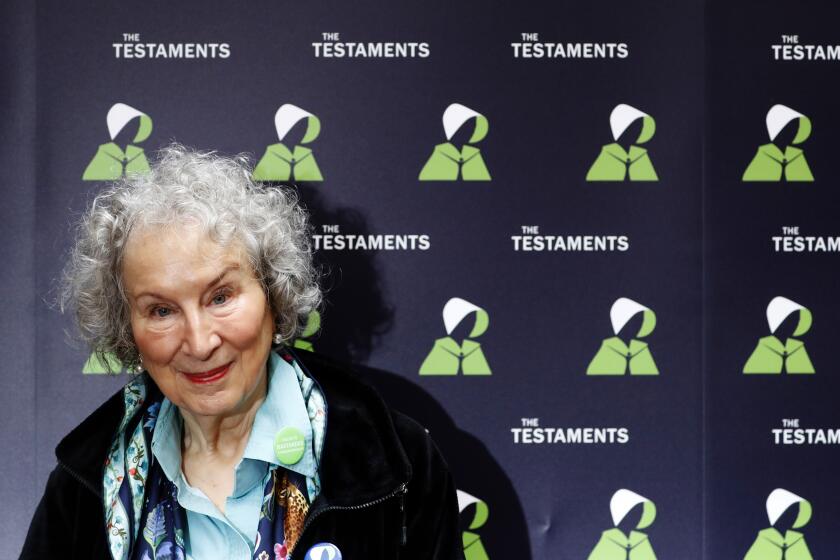10 books to add to your reading list this month
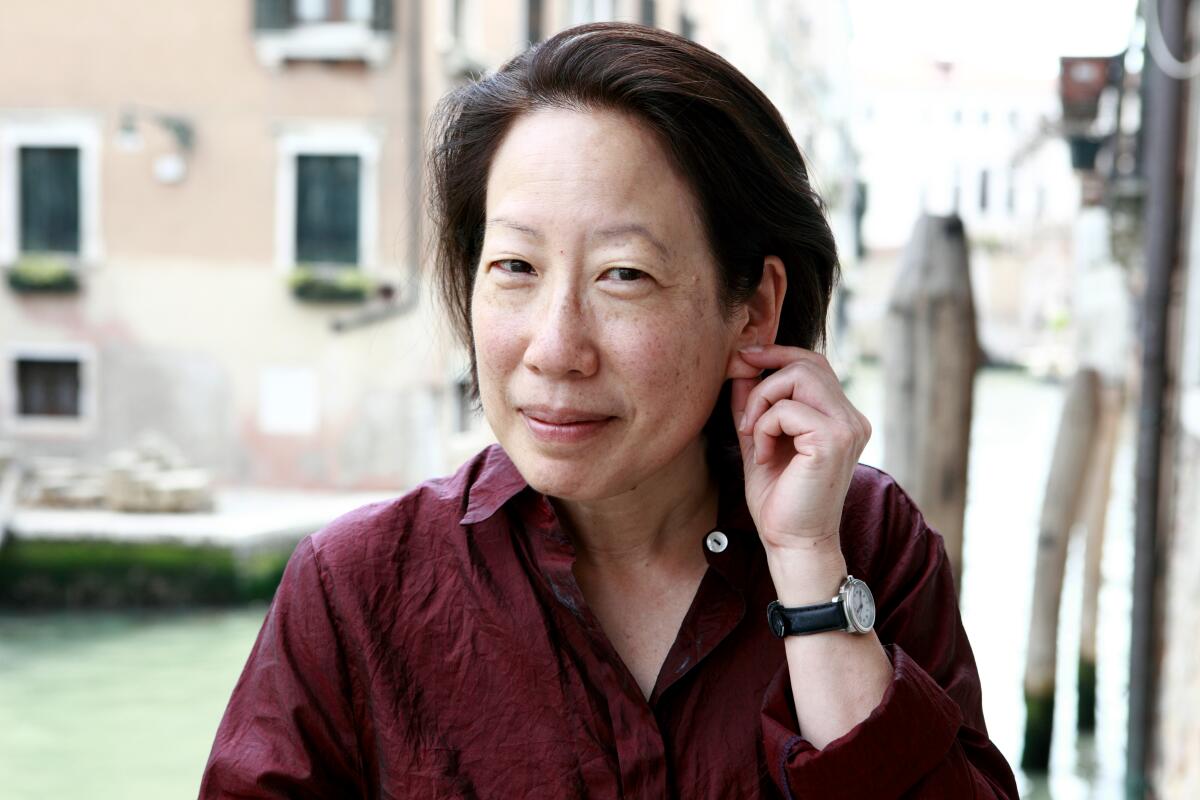
- Share via
10 Books to Look Out For in January
If you buy books linked on our site, The Times may earn a commission from Bookshop.org, whose fees support independent bookstores.
To kick off 2022, critic Bethanne Patrick recommends 10 promising titles, fiction and nonfiction, to consider for your January list.
Everyone wants a fresh start in the new year, though that goal seems more elusive with each passing January. This one is off to a good start, however, where books are concerned; often a quiet month in publishing, January turns out to be full of surprises. Strong choices in fiction are set in present-day New York City, Nixon-era China and a dystopian future, while nonfiction offers memoirs about politics, parenthood and open relationships.
FICTION

Olga Dies Dreaming
By Xochitl Gonzalez
Flatiron: 384 pages, $28
(Jan. 4)
Olga Acevedo plans high-end weddings — for everyone but herself. She is happy to have moved on from down-at-heels Sunset Park, Brooklyn, where she grew up, to a Fort Greene high-rise. Meanwhile, brother Prieto is a congressman whose good works are compromised by compromising photos. And both siblings must cope with their estranged mother, a Puerto Rican activist in the eye of Hurricane Maria. The sharpest and best written social comedy in a while.
Out this week, “Olga Dies Dreaming” follows a highly-driven wedding planner for New York’s ultra-rich whose personal life is in shambles.
Yonder
By Jabari Asim
Simon & Schuster: 272 pages, $27
(Jan. 11)
At Placid Hall, enslaved Black workers call themselves The Stolen and their white captors Thieves. The Stolen maintain their community and individual integrity by adhering to language-based rites that include stories, myths and naming traditions. Whether the power of words will help one group decide what to do in a moment of crisis becomes the crux of this powerful novel.
Small World
By Jonathan Evison
Dutton: 480 pages, $28
(Jan. 11)
Although it starts and ends with a train wreck, Evison’s latest is anything but. In between a flash-forward opening and the concluding crash of a Seattle-bound Amtrak, he constructs a clear-eyed account of some its passengers and their 19th century ancestors. From Jenny, the descendant of a successful Chinese immigrant, to Laila, whose forebear was Native American, and even Walter, the train conductor, grandson of orphaned Irish twins, we learn not just that everyone has a story but that all their stories matter in a larger narrative: Of American opportunity and division, progress and disaster.
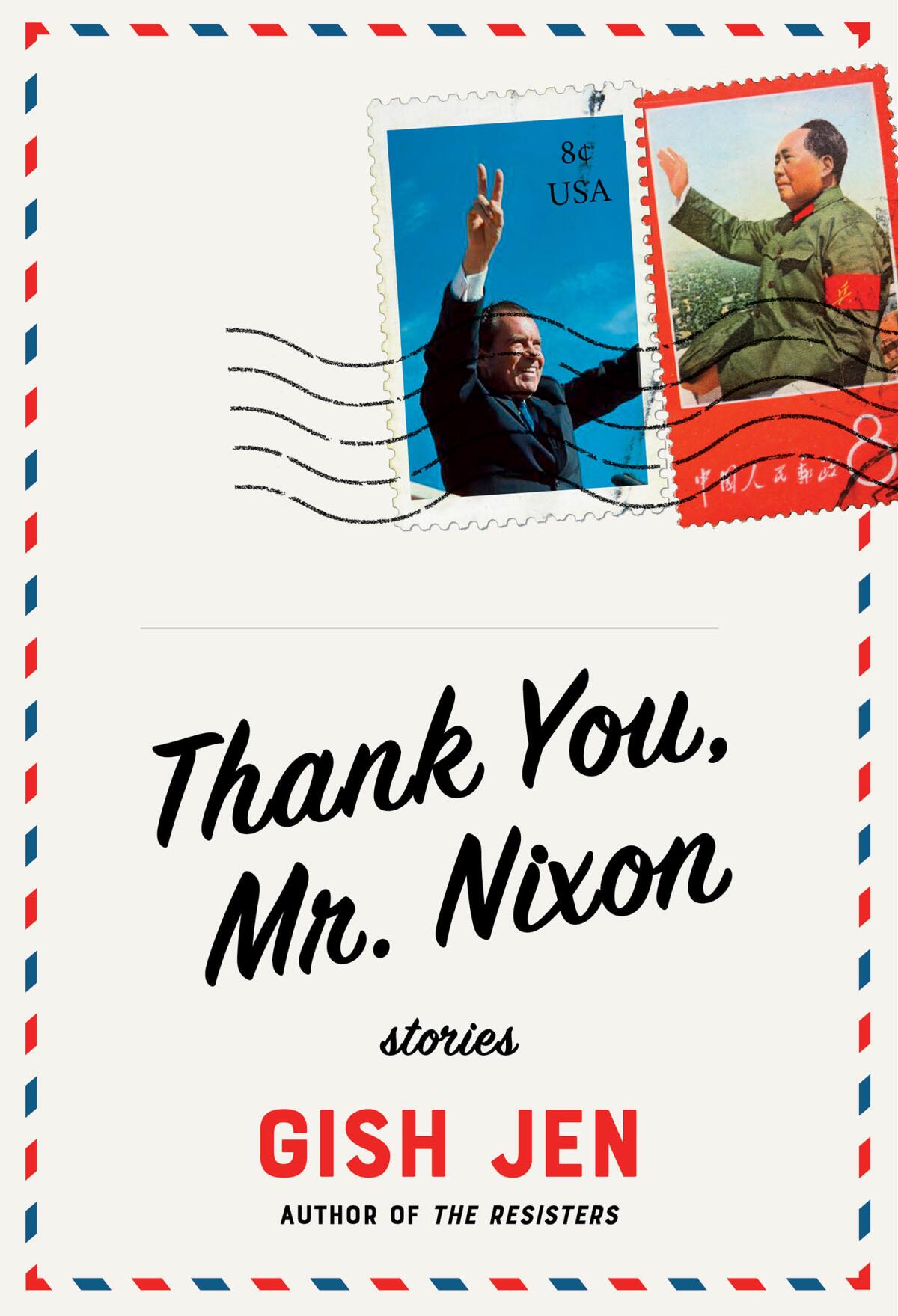
Thank You, Mr. Nixon
By Gish Jen
Knopf: 272 pages, $28
(Jan. 25)
In 11 linked stories, Jen (“The Resisters”) covers the decades after President Nixon supposedly “opened” China to the West, allowing new measures of trade and diplomacy. But as her short fiction shows, political action alone cannot bridge enormous gaps in cultural understanding. From the opening story, in which a Chinese woman in heaven writes to Nixon in hell, Jen provides a thrilling and eye-opening ride.
‘The Resisters,’ Gish Jen’s first novel in nine years, imagines a class-based dystopian United States.
How High We Go in the Dark
By Sequoia Nagamatsu
William Morrow: 304 pages, $28
(Jan. 18)
When a Siberian Neanderthal corpse releases ancient alien plague spores out of the melting permafrost, the modern world is upended. Nagamatsu’s novel isn’t about hope, but about how things change in the space between possible and impossible. Of course the one thing that never changes, even or especially in tragic times, is human nature. Bleak, yes, but also grounded in lived reality.
NONFICTION
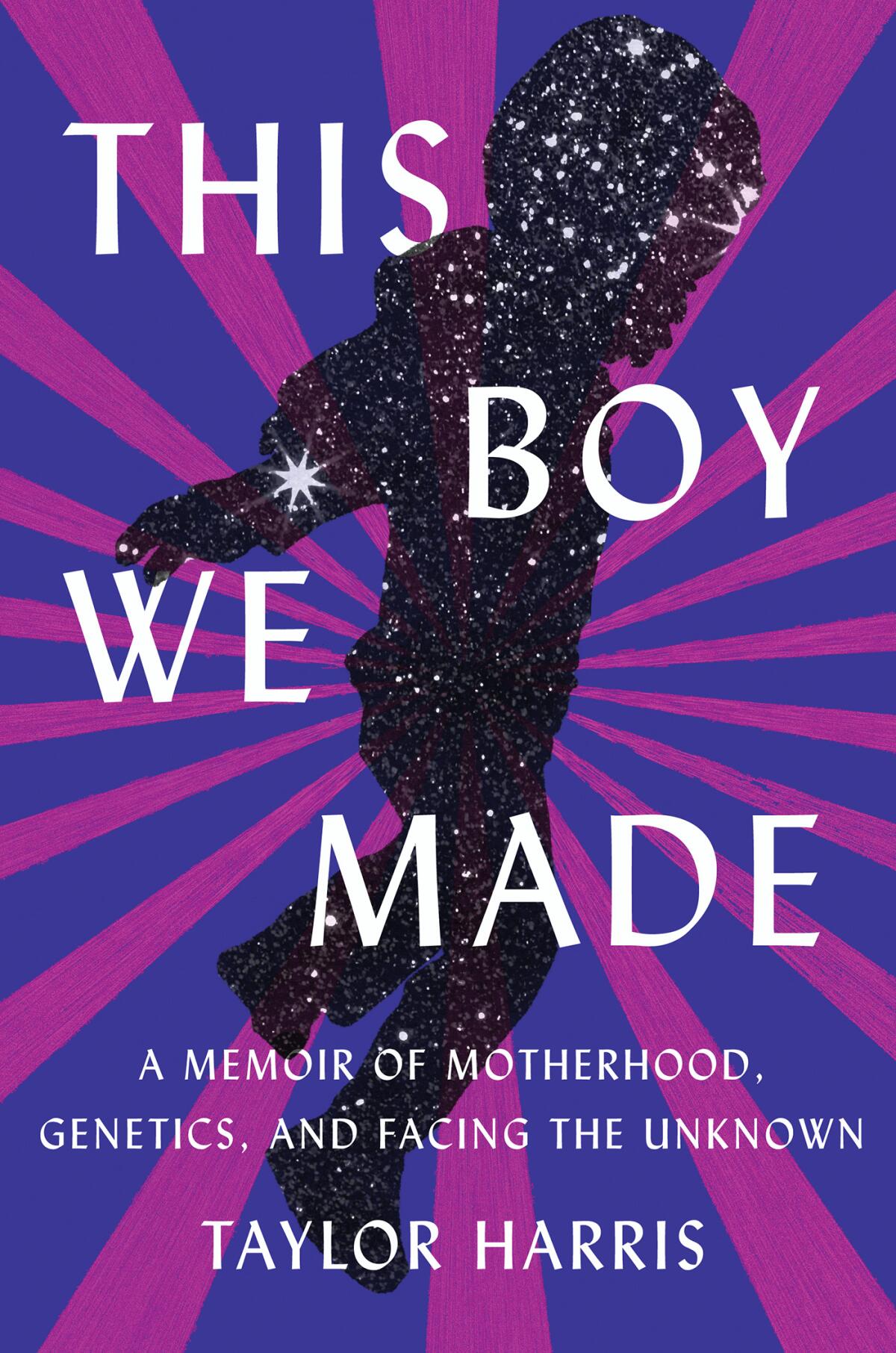
This Boy We Made: A Memoir of Motherhood, Genetics, and Facing the Unknown
By Taylor Harris
Catapult: 272 pages, $26
(Jan. 11)
Any parent would panic if their normal, happy toddler suddenly grew weak or learning-delayed — as did Taylor Harris when it happened to her 22-month-old son Tophs. But the Charlottesville, Va., author experienced another layer of panic — the trepidation of squaring off against a medical establishment that often waved away the concerns of Black parents. Her singular memoir combines medical mystery with hard-won self-knowledge.
Lost & Found: A Memoir
By Kathryn Schulz
Random House: 256 pages, $27
(Jan. 11)
After losing her father and finding her wife, Schulz, a staff writer for the New Yorker and a Pulitzer Prize winner, began writing about the “emotional conjunction” in her title. What does it mean to experience loss? How does it affect subsequent discoveries? Perhaps only a writer this talented could weave together the deeply personal along with larger cultural concepts in a memoir that reckons with the universal.
Manifesto: On Never Giving Up
By Bernardine Evaristo
Grove: 224 pages, $27
(Jan. 18)
Evaristo was the first Black woman to win the prestigious Booker Prize, in 2019, for her novel “Girl, Woman, Other.” In her new memoir the author describes how her multiracial childhood in a large Roman Catholic family and her reckoning with queerness led her to a career in theater production and, eventually, in literature, a realm she personally expanded.
Canadian writer Margaret Atwood and British author Bernardine Evaristo have split the Booker Prize, after the judging panel ripped up the rulebook and refused to name one winner for the prestigious fiction trophy
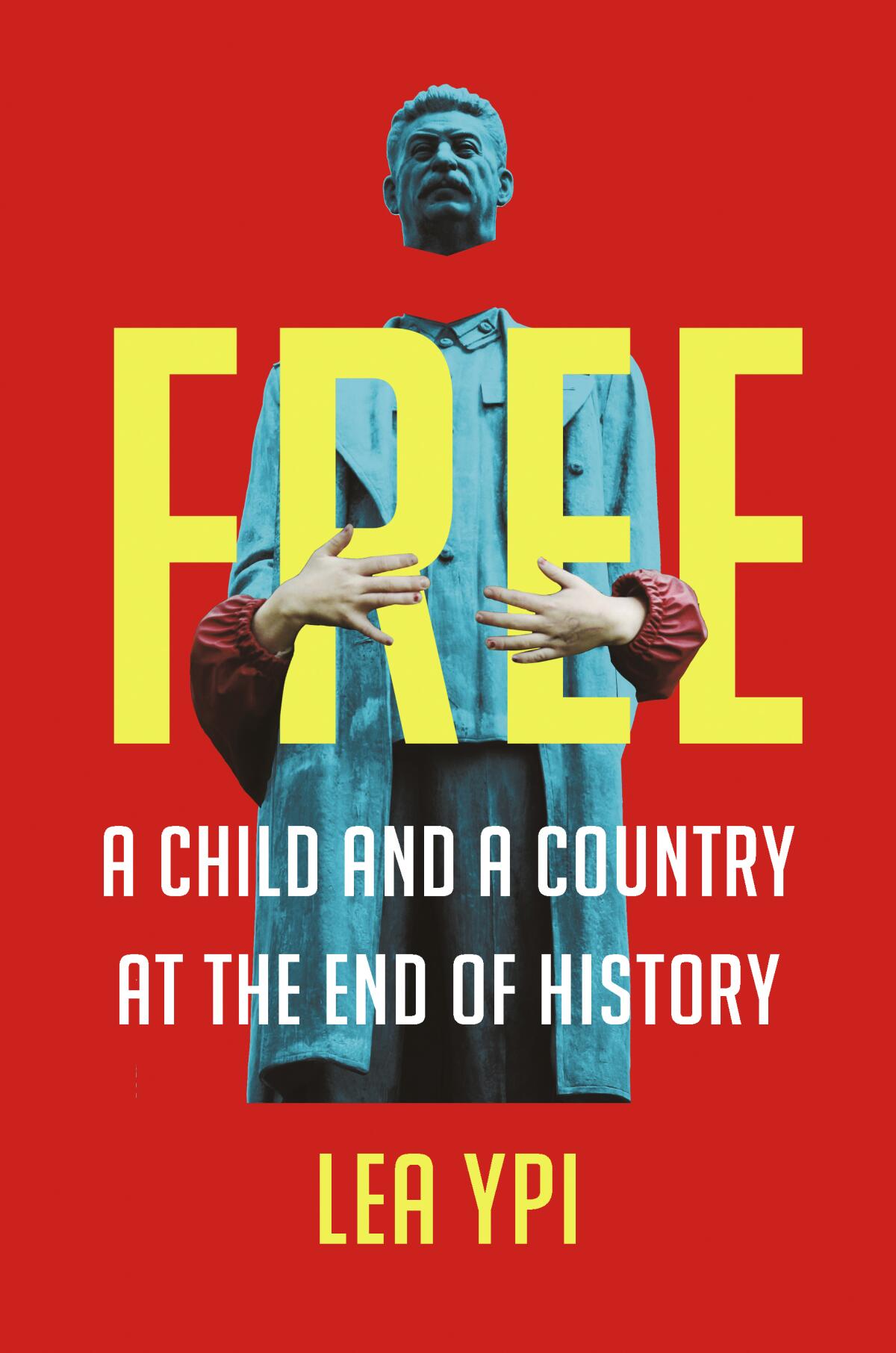
Free: A Child and A Country at the End of History
By Lea Ypi
Norton: 288 pages, $28
(Jan. 18)
Lea Ypi’s electrifying memoir may be the best account to date of what it was like to live in Enver Hoxha’s Albania — where the adults around her used carefully coded language to talk about the disappeared, and where, when Hoxha died and the Eastern Bloc began to crumble, no one had a playbook for how to adapt. Now a professor at the London School of Economics, Ypi reveals her formidable intellect but retains her humor too.
Open: An Uncensored Memoir of Love, Liberation, and Non-Monogamy
By Rachel Krantz
Harmony: 352 pages, $28
(Jan. 25)
Krantz, a founding editor of the website Bustle, chose to enter a relationship where “nothing was off limits.” But there were limits. Even as her partner espoused sexual freedom, he employed manipulative measures — and, Krantz admits, so did she. Her breathtaking honesty in probing the serious downsides of polyamory while eschewing outmoded patriarchal codes of morality should allow for an overdue dialogue about what makes any relationship work.
More to Read
Sign up for our Book Club newsletter
Get the latest news, events and more from the Los Angeles Times Book Club, and help us get L.A. reading and talking.
You may occasionally receive promotional content from the Los Angeles Times.

